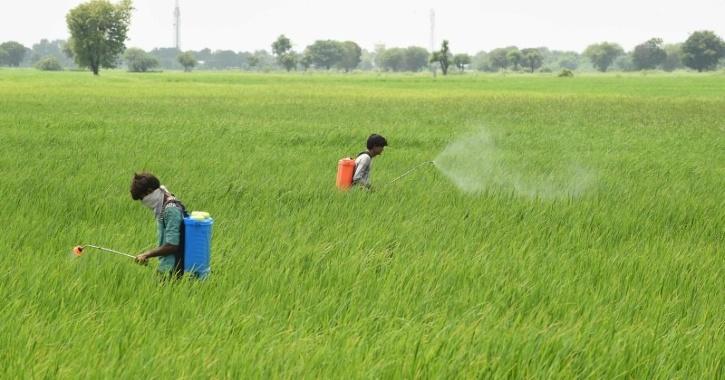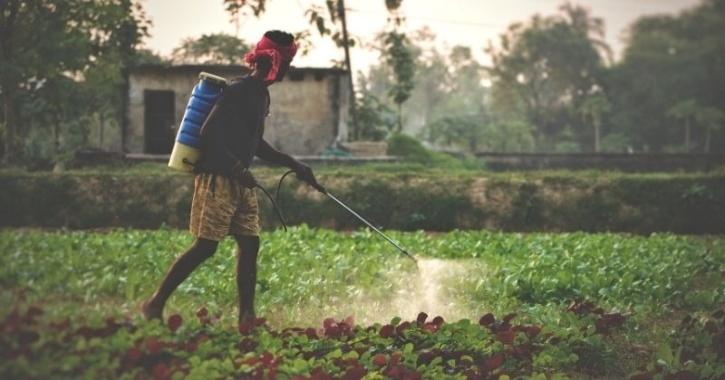Science And Future
World’s Farming Land At Risk Of Pesticide Pollution, India Farmers Have Bigger Problem

SCIENCE AND FUTURE
World’s Farming Land At Risk Of Pesticide Pollution, India Farmers Have Bigger Problem
Mayank Mohanti
Mayank Mohanti
a new study has found that 64 percent of agricultural land all over the world had levels of pesticide chemicals higher than what industry standards consider 'no-effect concentrations.' A third were considered high-risk, with pesticide levels more than 1,0
The research found that Asia houses the largest land areas at high risk of pollution--1.9 million square miles--with China accounting for more than half.
The impact of pesticides in a farmer’s life can be gauged by the fact that farmers in India lose around 20-25 per cent of their total production to pests and diseases.
Currently, India is the 4th largest producer of pesticides in the world and according to a research, the Indian pesticides market was worth ₹197 billion in 2018. The market is further projected to reach ₹316 billion by 2024
The 37th Standing Committee of the Ministry of Chemicals and Fertilizers in the year 2002 estimated that every year, Indian farmers face losses amounting to ₹90,000 crores due to pests and diseases.
Pesticide is a chemical or biological agent intended for preventing, destroying, repelling or mitigating any pest. They represent the last input in agriculture and are used to prevent the spoilage of crops from pests such as insects, fungi, weeds, etc., thereby increasing the overall productivity.
Farmer using pesticide in a remote village in Bihar
Mayank Mohanti for Indiatimes
Pesticide pollution a cause for worry
But a new study has found that 64 percent of agricultural land all over the world had levels of pesticide chemicals higher than what industry standards consider 'no-effect concentrations.' A third were considered high-risk, with pesticide levels more than 1,000 times higher than no-effect concentrations.
The study, published in Nature Geoscience, pointed to a 'widespread global pesticide pollution risk’ by examining nearly 100 agricultural chemicals used across 168 countries. The risk to soil, the atmosphere, as well as surface and groundwater were taken into consideration.
India agriculture pesticide use
The research found that Asia houses the largest land areas at high risk of pollution--1.9 million square miles--with China accounting for more than half. Scientists are concerned that the overuse of pesticides will tip the balance, destabilise ecosystems and degrade the quality of water sources that humans and animals rely on to survive.
Indian farmers have a larger problem at hand
The impact of pesticides in a farmer’s life can be gauged by the fact that farmers in India lose around 20-25 per cent of their total production to pests and diseases. Also with urbanisation and rising population levels, the total available arable land per capita has reduced over the years encouraging farmers to use more pesticides in order to improve crop yields.
